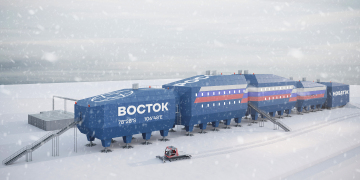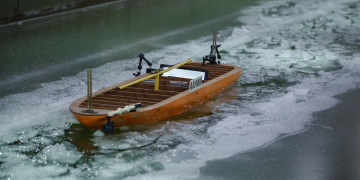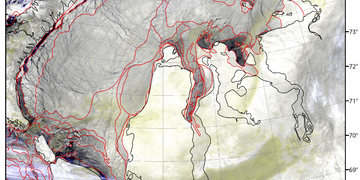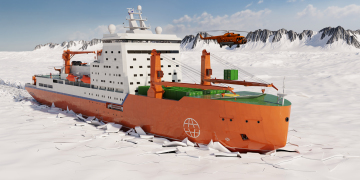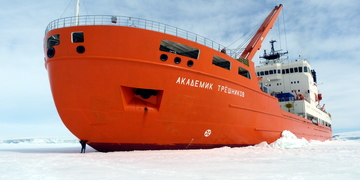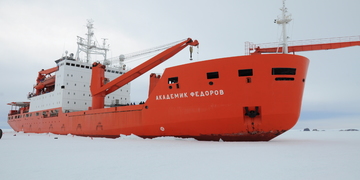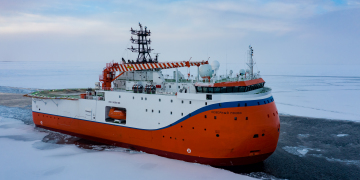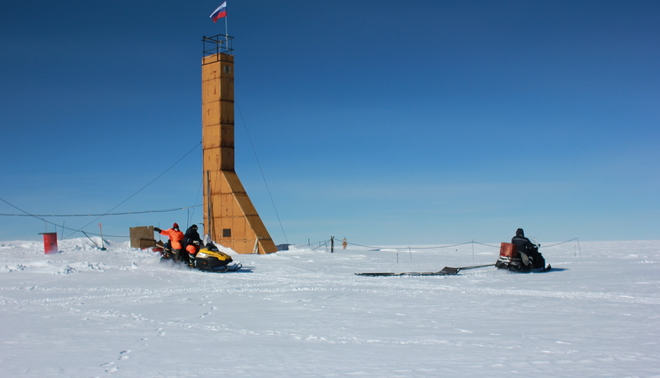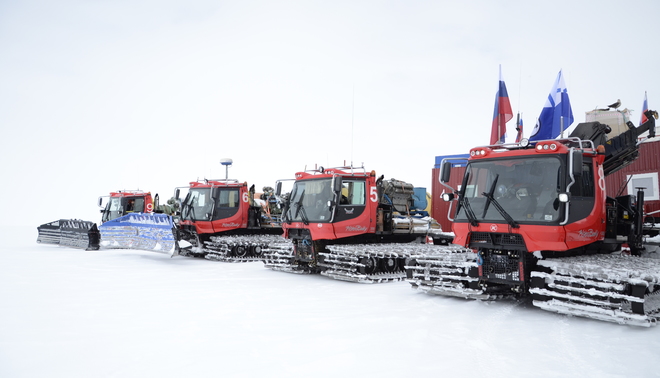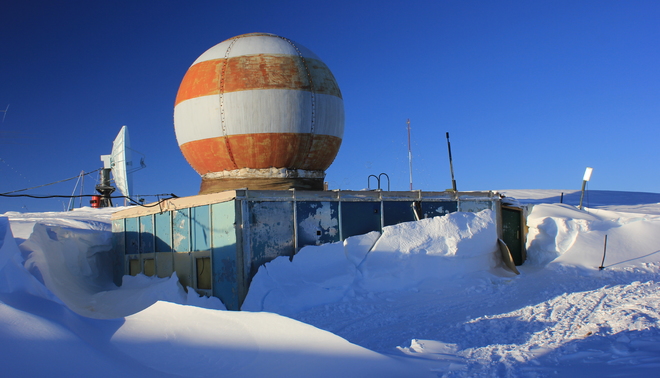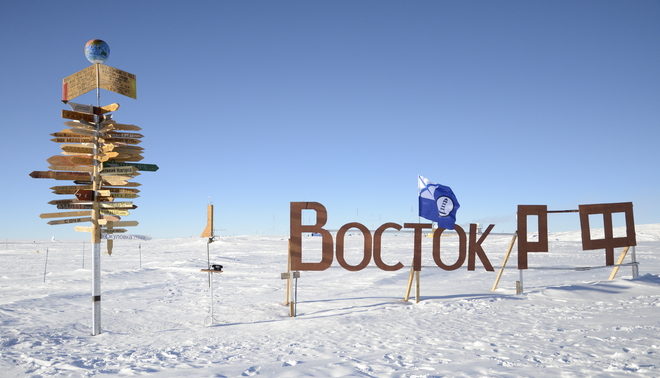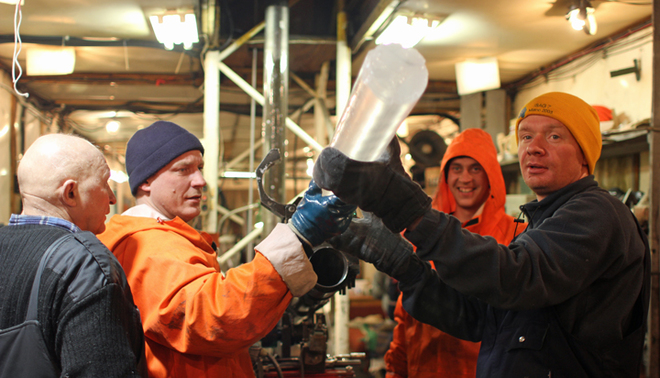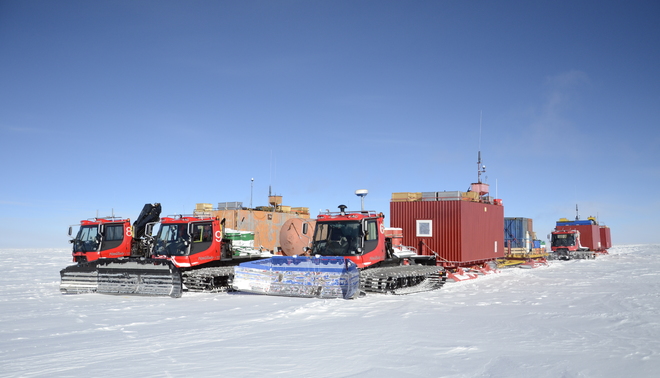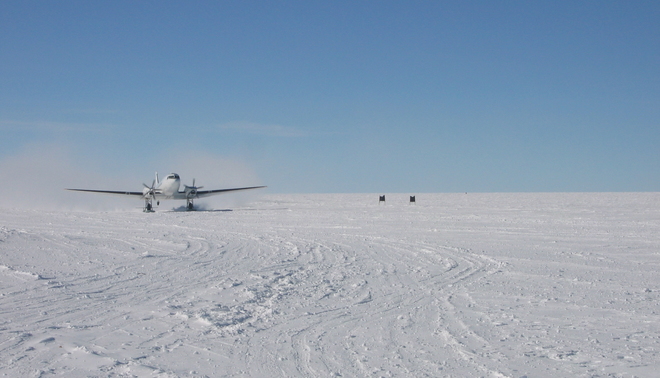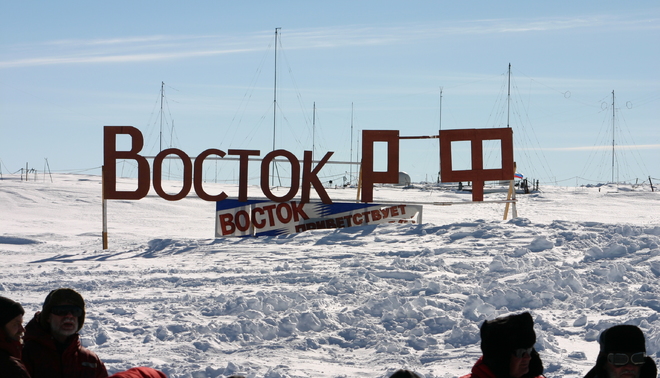Vostok is the inland Russian Antarctic station. It is located on the flat snow surface of the glacial plateau, 1350 km from Progress station.
| Founded: | December 16, 1957 |
| Time zone: | UTC+7 |
| Polar day: | October 21 – February 21 |
| Polar night: | April 23 – August 21 |
| Coordinates: | S 78°28` E 106°48` |
| Synoptic index: | 89606 |
| Average air temperature in summer: | -35,9°С |
| Average air temperature in winter: | -66,7°С |
Named after the sailing sloop "Vostok" - one of the ships of the Russian South Polar Expedition of 1819-1821.
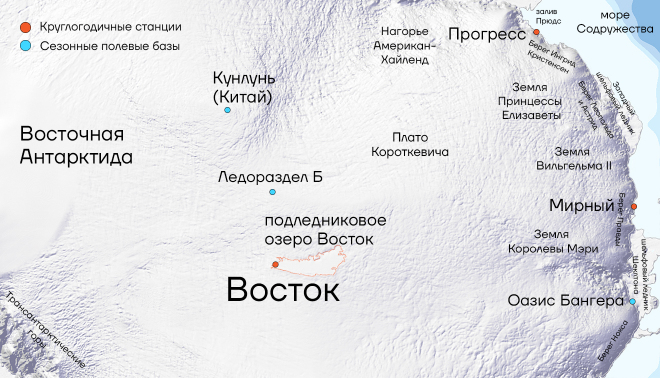
ON JULY 21, 1983, THE LOWEST TEMPERATURE ON THE PLANET WAS RECORDED HERE – MINUS 89.2° C.
Vostok is the furthest from the sea Russian station in Antarctica. Therefore, it is supplied from the Progress station by two tractor train traverses (the route length is 1350 km) taking place in each summer season, and the change of personnel and delivery/removal of seasonal personnel is carried out by the DC-3 BT 67 “Basler Turbo” aircraft.
Vostok is the coldest and the most isolated Russian Antarctic station due to severe climatic conditions. This area is called the planet's “Pole of cold”. In summer, due to low ozone concentrations, the station experiences hard UV radiation, which corresponds in magnitude to the northern coast of Africa.
Vostok is a high-altitude station. It is located at an altitude of 3,488 m above sea level. The average annual atmospheric pressure at Vostok is 624.2 hPa. And the average annual relative humidity is 71%.
- Vostok station in Antarctica as an analogue of a future habitable base on the Moon
- To the 60th anniversary of the Vostok station
LAKE VOSTOK
The largest subglacial Lake Vostok, the fifth largest freshwater body of water in the world by volume, lies beneath the ice sheet in the area of the Vostok station. The lake is unique, since it has been isolated from the Earth's surface for tens of millions of years.
At Vostok station, a program for studying the relict subglacial Lake Vostok and a paleoclimatic research program are being carried out. The year-round scientific program at the station includes magnetosphere and ionosphere observations, meteorological observations and biomedical research. During the seasonal period, glaciological studies are carried out at the station.
- The path to exploring the waters of the Lake Vostok is open
- Hydrological regime of subglacial the Lake Vostok according to the study of lake ice core
- Assessing the biogeochemical potential of subglacial Lake Vostok, East Antarctica, to support microbial life
- Preliminary results of the chemical composition studies of the water frozen in a borehole after the opening of Lake Vostok
- Subglacial Lake Vostok: a new type of bacteria is discovered
- On modeling the circulation of subglacial Lake Vostok
DEEP DRILLING
AARI is conducting deep glacier drilling at Vostok station. In February 2012, for the first time in human history, as a result of drilling the Antarctic ice sheet, the surface of subglacial Lake Vostok was reached at a depth of 3769.3 m. While opening the lake, the researchers obtained unique materials: the lake ice core from the Antarctic glacier bottom layers and samples of the frozen lake water. Comprehensive studies of the probes yielded scientific results of world significance, which made a fundamental contribution to the knowledge of the unique subglacial reservoir and became new evidence for the Russian science competitiveness at the international level. In January 2014, subglacial Lake Vostok was re-opened.
Presently, the project has been suspended due to the search for environmentally friendly ways of drilling and penetrating into the lake.
- Drilling work at Vostok station during the seasonal period of the 58th RAE
- Search and research of the oldest ice on Earth
NEW WINTERING STATION BUILDING
The installation of the new station building will be carried out in 2022-2025, since due to difficult climatic conditions there are only a few months a year when delivering and installing the needed equipment at the station is possible.
Currently, the site for the housing installation is being prepared and equipment delivery routes are being surveyed.
PHOTOS
| By Alexey Ekaikin, Alexey Golubev, Vladimir Lipenkov, Yuri Shibaev |
MAP
| By Sergey Kashin, Arina Kosareva |
